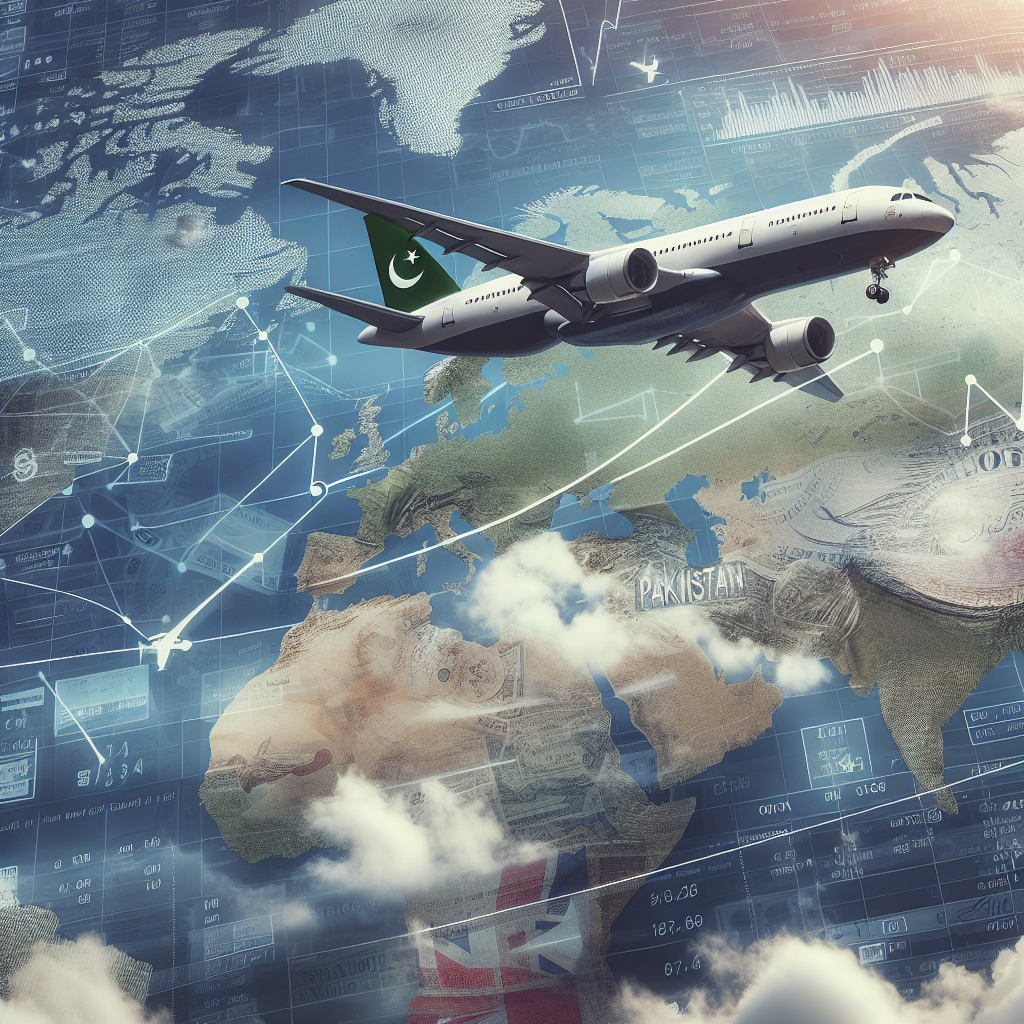**Grounded No More: UK Opens Skies Back to Pakistan Airliners, and the Geopolitical Gameboard Just Shifted**
Listen up, world travelers and armchair diplomats—drop your seat trays and fasten your seatbelts, because this ride’s about to shake some tailwinds. After five long years of turbulence, the UK has finally cleared Pakistan’s national airline, PIA, for takeoff over British skies. No more circling the airspace of geopolitical suspicion. No more runway of shame. Pakistan International Airlines is officially back on Route Westminster.
Now, before we throw a ticker-tape parade through Heathrow, let’s dissect the real in-flight meal here: this isn’t just about aluminum birds getting permission to land. This is about power, perception, and—yes, my favorite word—privatization.
Just months ago, the European Union cautiously waived its own five-year ban like a bureaucrat waving off a last train at Brussels Central. Coincidence? Please. This is strategy with a side of political soufflé. Pakistan, under pressure and strapped for cash tighter than an economy-class seatbelt, has been dancing to the IMF’s privatization tune. And guess who’s spinning the record? The West.
Now let’s roll back the tape for a moment. The original flying fiasco was sparked after a damning 2020 report revealed that nearly a third of PIA pilots were flying with suspect—or let’s call it, generously ‘creative’—licenses. The scandal was so bad it practically needed parachutes. Suspension was swift. Western regulators essentially said, “Until you get your cockpit drama sorted, don’t darken our radar.”
But here’s the kicker, folks: fast-forward to 2024 and suddenly, everything’s hunky-dory? What changed?
The answer, dear reader, isn’t in the cockpit. It’s in the boardroom.
PIA’s long-gurgling rebranding as a sellable asset has whipped up enthusiasm in capitals from London to Lisbon. In other words, once Pakistan started whispering the sweet words “structural reform” and “public-private partnerships,” geopolitical forgiveness came rolling in faster than a 747 on final approach.
Let’s call it what it is: Western regulatory forgiveness dressed as aviation diplomacy.
Heads up: this isn’t altruism—it’s appetite. Appetite for commerce. Appetite for collaboration. Appetite for another market piece, now wrapped in reformist ribbon and ready for takeoff.
But here’s where things get deliciously twisted. While Pakistan scrambles to tidy its image and auction off state institutions to appease economic overlords, its airline—once banned and bludgeoned—is now back on international playlists. It’s like grounding a kid for wrecking the car, then giving them the keys after they watched a few YouTube videos on defensive driving.
Am I throwing shade? Absolutely. But I’m also handing out credit. Pakistan played the long game—and won a round. The timing of this UK lift is not only symbolic—it’s strategic oxygen. It gives Islamabad bargaining chips it desperately needed, especially as it talks debt reform, trade access, and diplomatic detente.
So what happens now? Well, passengers will soon find Islamabad inked into European flight radars again. But more critically, we’re witnessing a wider thesis unfold: if you want to get back into the good graces of global gatekeepers, you don’t bring apologies—you bring assets.
The game’s on, and PIA’s flying again—not because its wings got stronger, but because its owners changed the flight plan.
Here’s your takeaway tray, folks: geopolitical bans are rarely about principle—they’re about leverage. And when leverage changes, so does the air pressure. Fancy that.
Engines on. Airspace open. But the sky isn’t the limit. It’s the battlefield.
– Mr. 47










